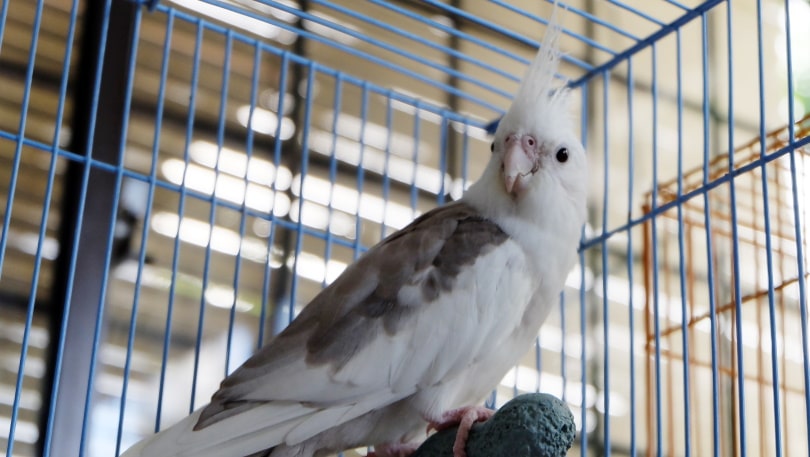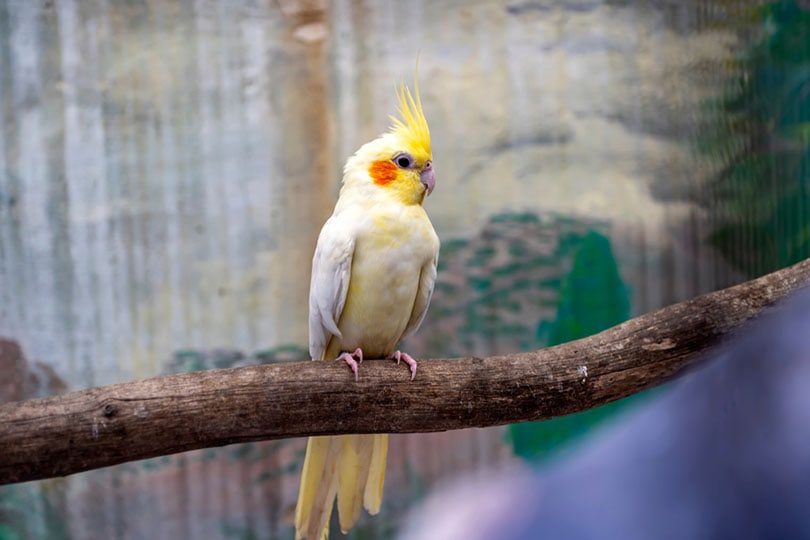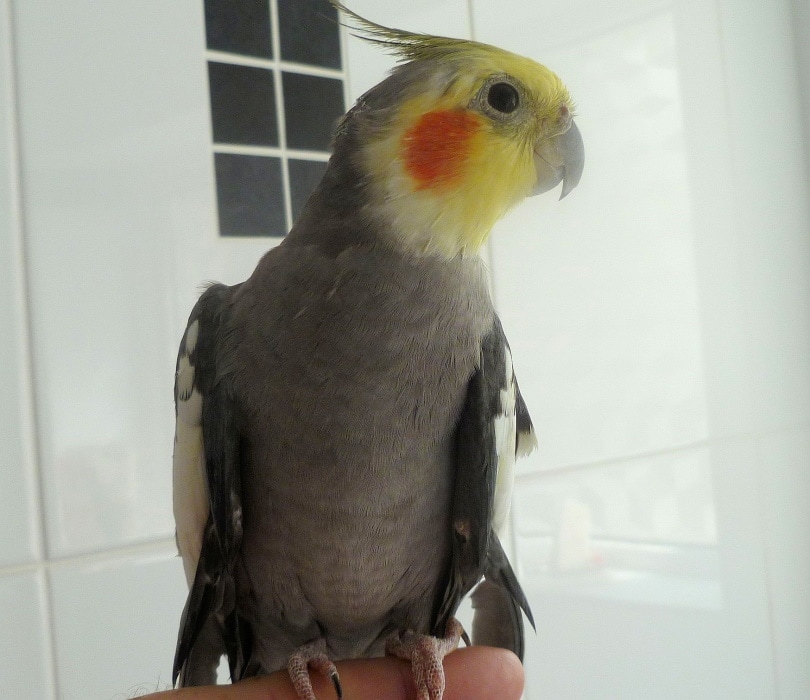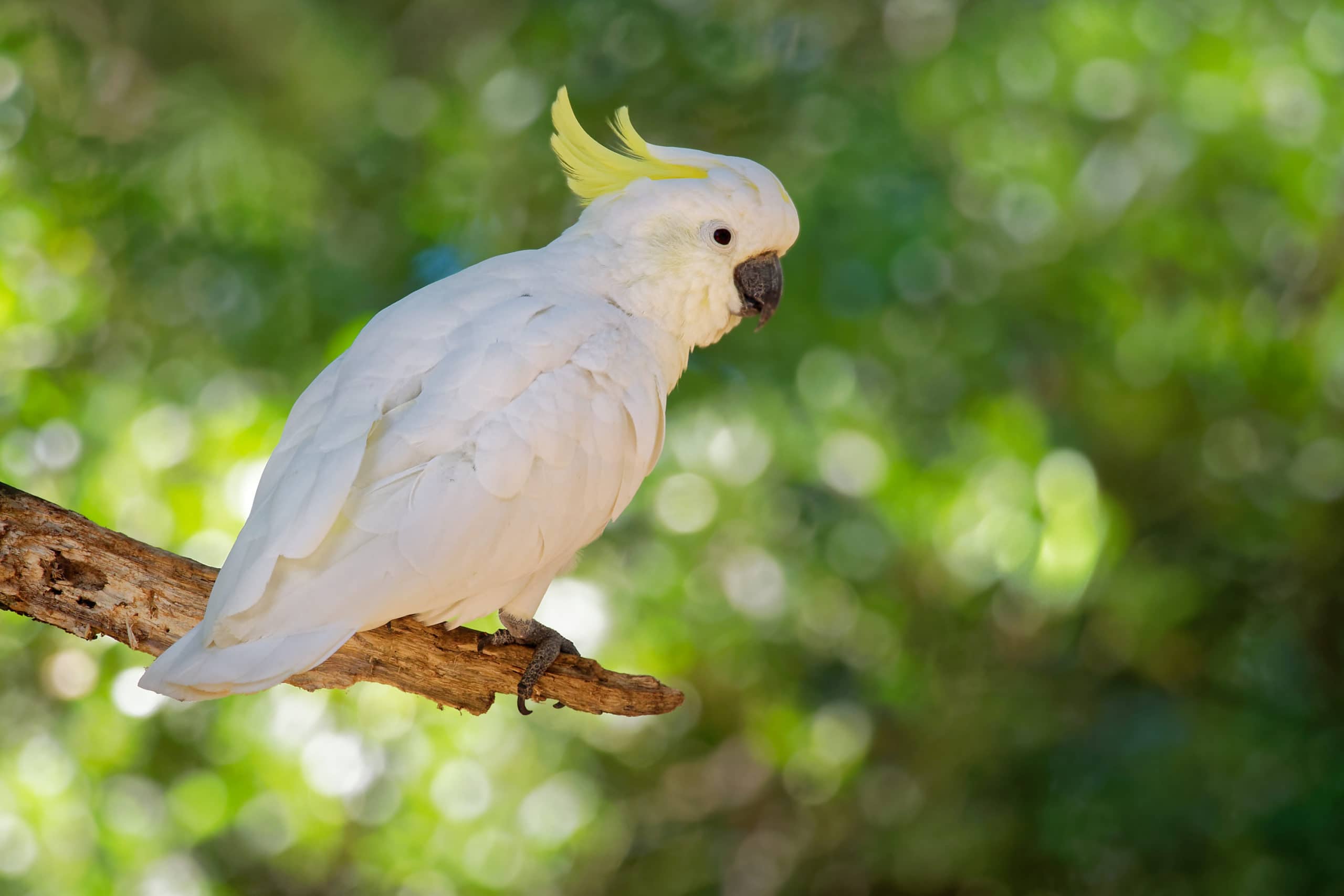
Click Below to Skip Ahead
Cockatiels are one of the most popular birds kept as pets and for good reasons. Cockatiels are intelligent, social, and fun birds that can be a real pleasure to keep. Before bringing home a cockatiel, though, it’s important to understand what a typical growth rate looks like and how big you can expect your bird to get. This will help you determine if there is a problem by knowing if your bird is developing faster or slower than expected for this species. Generally after one year, you can expect your cockatiel to weigh 100-120 grams.
Here’s what you need to know.
Facts About the Cockatiel
Cockatiels are a type of parrot, which is surprising to many people. They belong to the cockatoo family, which is a subgroup of the larger parrot family. They are native to Australia, but the export of native Australian birds has been illegal for almost 100 years. Luckily, cockatiels are relatively easy to breed in captivity, so they are widely available in the pet trade.
These birds are social and produce a variety of vocalizations, with some even developing the ability to mimic human language. They can live long lives, often exceeding 30 years of age, so cockatiels are a long-term commitment. They’re extremely popular as pet birds because of their manageable size and social nature.
Although there are multiple color variations of the cockatiel, they are all similar in size and shape. Color variations can impact the location of specific colors on the bird’s body and completely replace naturally occurring colors, like gray, with other colors through selective breeding.
Cockatiel Size and Growth Chart
This chart is a representation of the expected growth rate of all varieties of cockatiels since there is minimal size or growth rate difference between varieties. Cockatiels typically are finished growing around 6 months to 1 year of age, although they are typically sexually mature between 1–2 years of age.

When fully grown, cockatiels reach 12–14 inches in length. The length of growing cockatiels is not typically used as a guide, though, with regular weighing of the birds and determining if weight gain is occurring is the more accurate representation of growth and development.
| Age | Weight Range |
| 3 – 6 days | 5 – 12 grams |
| 1 – 2 weeks | 12 – 45 grams |
| 2 – 3 weeks | 45 – 72 grams |
| 3 – 4 weeks | 72 – 108 grams |
| 4 – 7 weeks | 80 – 120 grams |
| 7 weeks–12 months | 90–120 grams |
| 12 months+ | 100–120 grams |
Housing a cockatiel isn’t as easy as it sounds. Whether you’re setting up your first cage or looking to upgrade your cockatiel’s home, check out the well-researched book The Ultimate Guide to Cockatiels, available on Amazon.
This excellent resource is packed with information about choosing the ideal perch, selecting the best cage design and positioning, helping your cockatiel adjust to its new home, and much more!
When Does a Cockatiel Stop Growing?
Cockatiels are usually finished growing in size by 12 months of age, although some will stop growing as young as 6 months of age. Internal development usually continues to occur beyond 12 months of age, though. Most cockatiels don’t reach full sexual development until 12–24 months of age, which means that a Cockatiel may appear to be full grown but still have internal growth left.

Factors Affecting the Size of Cockatiels
The primary factor impacting a cockatiel’s size is nutrition. Birds that aren’t being fed an appropriate amount of food or that are not receiving proper nutrients are likely to be smaller than average. This isn’t always the case, though, as some birds are just naturally small, even when receiving excellent nutrition. Ensuring your cockatiel is receiving enough food and an appropriately varied diet is the best way to ensure healthy, appropriate growth.
Ideal Diet for Maintaining a Healthy Weight
The primary source of nutrition for maintaining a healthy weight in your cockatiel should be a commercial pellet diet. Pellets and seeds should account for the majority of their diet, around 75%. Of that 75%, three-quarters of it should be pellets and one-quarter of it should be seeds. The other 25% of your cockatiel’s diet should be fresh fruits and veggies, with fruits accounting for around 15% and vegetables accounting for 10% of it.
Seeds and pellets should be around 1.5–2 tablespoons of food per day. That measures out to around 30–40 grams of pellets and seeds per day, with another 10–20 grams of fruits and veggies per day. Cockatiels are prone to obesity and obesity-related illnesses, so it’s important to properly measure or weigh their food.

How to Measure Your Cockatiel
The best way to measure your cockatiel is by using a gram scale. Scales that are appropriate for cockatiels that can measure in grams can be purchased in a variety of places, including baby stores and grocery stores. Kitchen gram scales are probably going to be your best bet, though, as they are made to weigh very small quantities of things. A scale that can weigh small amounts is essential if you are attempting to get accurate weights on a growing cockatiel.
Keep in mind that your exotic veterinarian will also be able to weigh your cockatiel, but this does require a trip to the vet. Vets won’t charge you for bringing a bird in just for a weight, but the trip back and forth can be stressful for your bird, so weighing at home is a good idea when possible.
Conclusion
Cockatiels are considered medium-sized parrots, but they are not particularly large birds, usually maxing out at a weight of 120 grams. They can grow to 14 inches in length, although weight is a far more accurate determiner of your bird’s overall size than length is.
Balancing your cockatiel’s diet is essential for maintaining their health, and many people unintentionally overfeed “fun” foods like seeds, fruits, veggies, and other treats. Make sure you are measuring or weighing your bird’s food every day to ensure you are feeding an appropriate amount. Obesity and obesity-related illnesses are prevalent in cockatiels, but they are preventable problems that can be avoided with proper husbandry.
Featured Image Credit: daphne.t, Shutterstock










